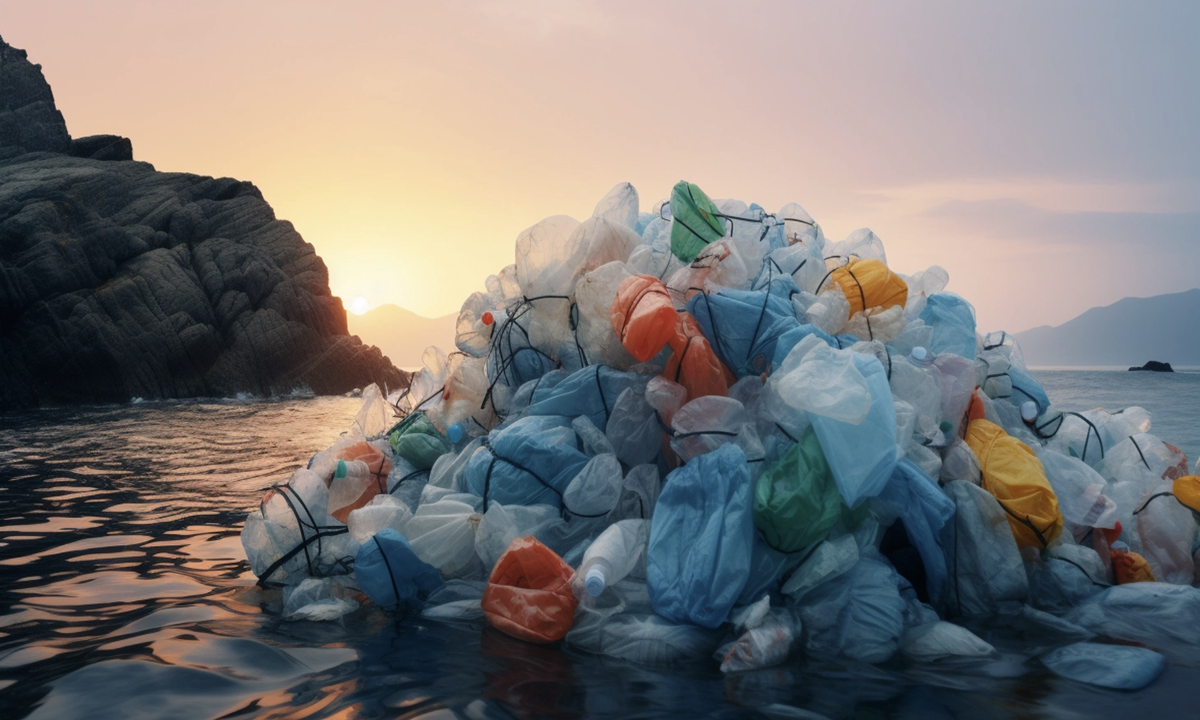WTO Members Deepen Dialogue on Plastics Pollution, Eye Global Standards and Trade Transparency
The meeting was set against the backdrop of a successful midterm review in April 2025, which assessed the DPP’s progress and laid the groundwork for future ambitions.

In a concerted effort to tackle the escalating global crisis of plastic pollution, members of the World Trade Organization (WTO) participating in the Dialogue on Plastics Pollution and Environmentally Sustainable Plastics Trade (DPP) convened on 19 May to advance their deliberations on two pivotal focus areas. The discussions focused on enhancing cooperation on international standards for non-plastic alternatives and improving the transparency of global plastics trade flows.
Renewed Commitment Following Midterm Review
The meeting was set against the backdrop of a successful midterm review in April 2025, which assessed the DPP’s progress and laid the groundwork for future ambitions. Opening remarks from Barbados and Morocco — co-coordinators of the DPP — reflected broad-based optimism about the path forward. They reiterated the initiative’s role as a unique WTO platform to address plastics pollution through trade-centric, inclusive approaches.
The co-coordinators emphasized aligning the DPP’s efforts with global movements, especially the negotiations being carried out under the Intergovernmental Negotiating Committee of the United Nations, whose next round of talks is scheduled for August 2025 in Geneva. They also pointed to strong support among co-sponsors to ensure that DPP outcomes complement — not duplicate — the work of other WTO committees and international bodies.
Latin America and Caribbean Workshop: Regional Voices Take Center Stage
Participants reflected on key takeaways from the DPP’s second region-focused workshop held on 16 May, which centered on Latin America and the Caribbean. This built on momentum from the first regional dialogue held in April, which focused on Africa.
Experts from the region emphasized the importance of supporting small and medium-sized enterprises (SMEs), enhancing institutional and regulatory frameworks, and providing technical and financial support to transition toward sustainable practices. Locally sourced biodegradable materials — such as banana peels, bamboo, and sugarcane byproducts — were promoted as viable substitutes for single-use plastics.
The workshop also highlighted consumer awareness, regional cultural preferences, and the growing importance of regional trade platforms like Mercosur and ALADI. These were seen as key vehicles to harmonize standards and promote a unified regulatory approach to single-use plastics.
Thematic Discussions: Standards and Transparency in Focus
Switzerland and China led discussions on the DPP’s two current thematic pillars.
Enhancing Standards for Non-Plastic Substitutes
Participants explored opportunities for greater alignment on international standards for biodegradable and non-plastic alternatives. The Codex Alimentarius Committee, under the UN Food and Agriculture Organization (FAO), presented its work on food packaging standards, emphasizing food safety and compatibility with sustainable materials.
Business representatives from Peru, the Philippines, and the Netherlands shared firsthand accounts of navigating regulatory hurdles in their respective regions. They outlined challenges faced in scaling nature-compatible materials and the complexities of managing compliance with diverse domestic and international rules.
The United States offered insights from the WTO Committee on Technical Barriers to Trade, particularly regarding packaging regulations’ unintended consequences on trade and sustainability efforts. The dialogue stressed the importance of cross-committee collaboration and the DPP’s role in information-sharing and experience exchange.
Members emphasized the DPP’s niche as a facilitator for harmonizing standards, sharing best practices, and encouraging fair access to sustainable alternatives — especially for developing nations that may lack the technical and regulatory capacity to shift away from plastics.
Boosting Transparency in Plastics Trade
The second thematic area addressed the growing demand for clarity in tracking plastics trade flows. The United Nations Institute for Training and Research (UNITAR) introduced its evolving statistical guidelines for mapping plastics throughout their lifecycle. These guidelines are designed to measure trade in embedded plastics and single-use items more effectively.
The European Union’s Joint Research Centre contributed a detailed overview of the bloc’s policy and regulatory frameworks aimed at monitoring plastics within its internal market. It emphasized data-driven approaches to identify hotspots of plastic use and leakage.
Participants broadly welcomed these tools and called for broader cooperation across international organizations to refine and disseminate tracking frameworks. They underscored the need for capacity-building in least-developed and developing countries to collect and analyze data essential for informed policy decisions.
Looking Ahead: Next Steps and Continued Engagement
Australia closed the meeting by thanking stakeholders for their ongoing engagement, stressing that transparency and standardization are key steps in achieving meaningful policy outcomes. The shared commitment among WTO members to advance environmentally sustainable plastics trade was clearly evident, though participants acknowledged that significant work lies ahead in areas such as certification, mutual recognition, and equitable access to alternatives.
The DPP’s co-coordinators are expected to conduct further consultations and provide updates on concrete next steps in the coming weeks. As momentum builds toward the upcoming UN negotiations in August, the DPP remains a crucial trade-focused platform for global cooperation on plastics pollution.
ALSO READ
UAE's Commitment to Families: A Pillar of Sustainable Development
Netherlands Pledges EUR 34M to UNDP to Boost Global Sustainable Developments
Himachal Pradesh Cabinet Makes Strategic Amendments for Sustainable Development
Yogi Adityanath Advocates Collaborative Effort for Sustainable Development and Zero Carbon Future










